The British Divide and Rule Strategy:
(By Sajjad Amin Bangash)
It’s an old proverb of the British Empire circumvented in and consisted a history of 300 years of ‘prowess and dominance’ over weaker nations thus conquering and ruling them accordingly. During my work in a bank few years back, I said to my deputy manager who was a Pakistani Christian Mr. Ashraf Bhatti that ‘During previous century, the Europeans especially UK has substantially developed their country thus dominated almost the whole world.’ He immediately paused me with a saying ‘Mr. Bangash, you are totally unaware to the historical truth is that they had looted and sucked all of precious treasures that we had through their knowledge, lies, tactics of divide and rule. Indeed, it’s not called, progress and development by your own rather through the wealth of others by possession and confiscation. You can’t call them civilized of their own.’
True, very true and this is what the correct answer a well learned mind can give you straightforwardly. Indian subcontinent, was an obvious victim of this strategy along with other nations of the world including Africa, Asia and North America and up till recently ‘Scotland’. The British came to India with an obvious show of trade but with hidden intentions to capture, occupy and plunder the treasures of this fertile land for which the entire Europe was eying some 300 years ago. Indian subcontinent was blessed with minerals, natural resources, four seasons surrounded by water of Indian and Arab oceans with diverse magnitude of variant cultures, beautiful weather and hard-working people. It was the time, when the Industrial Revolution just took place in Europe which made the European nations highly sophisticated, stronger in military power and economically stable which turned the European powers greedy, buoyant, thus they envied each other for the race of occupation the lands of weak nations of the world would always startle their minds. The European powers began their quest for exploring the unseen world and highly proactive in taking the lead against each other. French, Dutch, Spanish, Portuguese pioneered the mission of conquests.
In 17th century, France took the initiative by setting off navigating the other parts of the world followed by Dutch and Portuguese but the history tells us that someway or other, they remained unsuccessful in putting their ambitions into reality. The British was the last in a row and the Queen Elizabeth of Britain would order the elite marine officers and sailors to set off on an exploration of the world and claim the lands for Great Britain. Their prime target was India as they always had heard in stories, fables about the treasures of India. Spices, high quality of fabrics, cotton, agricultural products, vegetables, fruits etc. were highly demanded in the world of that time.
So, they always had to formulate strategies as to how to lay a wide web to conquer this treasure from the Indians. In the years from 1778 till 1832, the British had taken several journeys to India for some official purposes as to improve trade ties with India and they did so by eventually establishing ‘East India Company‘ with the prime objective was to enhance the trade ties with India and sooner, they started a high volume of exports from India. The products they sold in UK and Europe were so demanded that this company accumulated huge profits and soon became the richest company of the Europe, opening gateways to other companies to concentrate on establishing their own branches in India but since East India Company was secretly delegated a mission by the Queen to carry on with expanding the territorial occupation of India through trade and employment, so they didn’t let other competitors to get into the circle.
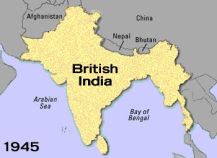
Time passed by and within few years of time, East India Company became very successful in expansion and they recruited their own security personnel for their security concerns and accumulated a huge army of British security personnel. They purchased lands for themselves and fought in the courts for the expansion of lease lands. They then expanded their wings and enlarged the occupation from Kolkata to Bengal and Southern part of India.
The historians narrate several reasons behind their successful expansion as financially stable, strong defense and efficient administration by which they could efficiently handle the administration, dealings with circumstances with strong defense, to bribe the locals as well other elements that could help them expand their intentions. One of the major reasons the historian suggest is that ‘the local tribal leaders, dukes and nobles’ who were from different religion would always find themselves in confrontation with each other for powers and territorial expansion.
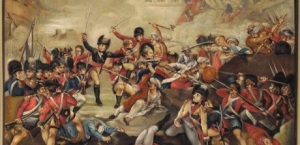
This had always paved the ways for British to play their dual role by aiding both sides and putting them on fight, weakening them and finally control both of the rivals territories. The British always considered themselves as superiors while local Indians as inferior. India was very diverse in nature and its princely rulers. From east to north, from north to west and from west to south, India was ruled and divided in princely states. In some parts, Hindu Rajas were ruling the smaller states or territories while there were Muslim mogul emperors and Sikh administering the Punjab state etc. So culturally, religiously and economically, these princes, statesmen, tribal leaders, dukes and Nawab would always find themselves in skirmishes and rifts for power. This enmity among themselves really helped the British for weakening their strengths and later, controlling their states either by force or treachery. There had been several fights between English and local leaders took place in which Tipu Sultan, ‘The Tiger of Mysor and Karnatakka’, and ‘Rani of Jhansi‘ are famous to name a few. Tipu Sultan is famous for his bravery, gallant and fear in the Indian history who is called ‘the inventor of modern weaponry’. The British knew that they’re weak against his power, so they bribed Tipu Sultan’s governors, Mir Jaffer and Mir Sadiq to betray him during the final ‘war of independence’ in 1857 in which Tipu Sultan was martyred.
After this, the British’s intention of occupation got cleared and they easily swept through all India, conquered it, and ruled it for over 200 years which is remembered as ‘British Raj on India’. The amazing aspect of their expansion is that, their soldiers were always Indians either Muslims, Hindu, Sikhs, Marhata etc. who would love to fight against each other in vengeance while Britishers would rule and put them on fight. They knew the hate of these local Indians against each other and tactically rolled them over in a fierce fight against each other. The British would always allure the common and ordinary citizens of India as bringing civilizations in the shape of railways, modes of communications such as telegraph, roads, schools, social and economical emancipation.
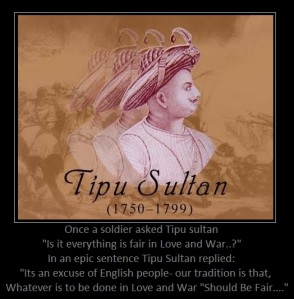
They recruited a huge number of Indians and ruled them. A historian writes that ‘20 million people ruled by 2000 Britons.’ Amazing reality. They levied heavy taxes on the Indian manufactures, traders and businessmen and most of the time, did not allow them to participate in trading in high volume. They would purchase the raw material of India in lower prices, export and process them in England and sell them on higher prices in UK and other European countries or India.
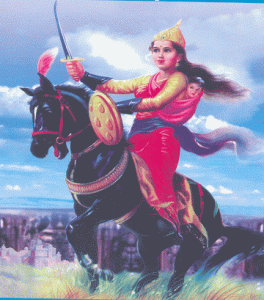
The history of British occupation of India is very extended and painful but one generic lesson can be drawn from the fact that the British left nothing to this world but to occupy, plunder the resources of others by successfully applying the strategy of ‘Divide and Rule’, on local people wherever they dominated and to left them on fight against each other, weakened them and later seized their resources, power and became rulers. Similarly, when they departed from our parts of world granting us a sheer independence while leaving the issue of Kashmir unresolved ignoring the very wishes of Kashmiri people, so as to keep India and Pakistan in a belligerent conflict for years to come and keep these two nations in an eminent state of direct confrontation and enmity forever. The result of which are two wars of 1965 and 1971 between India and Pakistan.
Now, I can see that they are still implementing the same strategy right now in Scotland, Wales and Ireland with the repetitive olden time deeper vested interests as to get hold of their natural resources swallow the profits while enticing the people of these countries against each other. But this is 21st century now and the people are more aware, well-educated, liberal, democratic and very responsive for their rights of self-determination and sovereignty of their respective countries. I hope and very sure that people of Scotland, Wales and Ireland will react very actively to turn the malicious intentions of English of dual standards and methods divide and rule, of lie, bigotry, occupation and possession of resources.
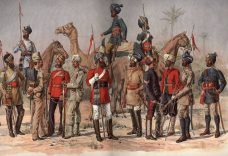
A. Very well written article . And yes very similar to what is happening in Scotland now ..I look forward to reading another blog ….big hugs xox
LikeLike
Thank you Avril for your inputs which infuse oxygen in me. In such short time, I have managed to pile up huge confidence and the words of my readers are impetus indeed.
LikeLike
Very well written and that Divide and Rule strategy is one which was supremely displayed during the run up the Referendum we had in Scotland recently, in which they played off Scot against Scot by using fear tactics and outright lies. Sadly, many of the most vulnerable Scots fell for it and voted accordingly. It’s past time the English (because Scots are NOT British) were put out to pasture and treated as the relics they truly are.
LikeLike
Thanks Sianna for putting valuable comments on my article. I know how the Westminster played its role in ‘maneuvering the outcomes of Scotland’s Referendum’ as we had have similar betrayal in 2013 elections.
LikeLike
Nice article. Well written and very informative for anyone who is not familiar with the devious ways of imperialist Britain. Unfortunately for us here in Scotland, things have not changed that much in the last few hundred years. However, things are not all doom and gloom, mostly due to the Internet and people like yourself who are doing their bit to get the truth about the past and the present out there. Hope to read more of your articles in the future. Take care. James.
LikeLike
Thank you James for kind comments and indeed, we have to go back in history books and scroll down the true facts about the imperialists like Britons who used every effort to get hold of other resources and become rich. The British are indeed the real culprit behind the chaos of modern times because they had inherited several conflicts among the people in the same regions.
LikeLike
Reblogged this on Sajjad Khan Bangash's blog.
LikeLike
Very interesting, and so much like Irish history, where local Clan chieftains were played off against each other. If the Indian princes had united the Brits never would have taken over India, the same script follows in other countries which were colonised for either strategic or economic reasons, nearly every country they pulled out of inherited a legacy of division and civil strife.
LikeLike
Agreed and that’s still happens in this world. The unfortunate aspect of weaker nations is that the local clans always find themselves in rifts while the powerful nations take advantage of it and swallow them.
LikeLike
It seems that the English /British establishment have done the same thing in every country they have exploited. Reading your account reminds me of how they played the Irish chieftains off against each other during tudor times. If the Indian princes had been united they never would have taken over India, has it is they seem to have done to India,the same thing they did to Ireland , which is to leave behind a legacy of division and civil strife.
LikeLike
Looks like my re-edited version got posted as well.
LikeLike
Thank you so much for your article and for tying it in with Scotland. Many of us were heartbroken we didn’t get independence last year, but articles like this make us even more determined to keep going. I don’t want to be part of the British Empire. I want to see an independent and peaceful Scotland. Thanks again.
LikeLiked by 1 person
Thank you Carole Horton, and yes it’s the ugly reality but we still can get ourselves united, determined and committed against the tyranny and oppression which free us and our resources.
LikeLike
disappointing result in the Scottish referendum. The pro campaign were totally blackened by the media,who used scare tactics to undermine people’s confidence, especially old age pensioners and others. At least that’s an outside impression of it, the British establishment were even quick to attempt to spread the dirt against Alex Salmond after the result. To make matters worse there seems to be stories about new oil fields in the North sea which if true would deprive Scotland of more revenue which gives a sinister aspect to the result.
LikeLike
That’s called ‘Politics of Pollution’ which they control media propagation, application of several intimidating strategies to undermine voters trust and courage.
LikeLike
Very good article but just one thing to mention. Most of Ireland got independence in 1921 after our War of Independence against the British. The UK retains control of 6 Irish counties in the north-east of Ireland as the majority there are descended from British settlers although they will soon be outnumbered by the native Irish who have always lived in those 6 counties. It’s not an ideal situation but we deal with it as best we can and hope someday for a reunited Ireland.
LikeLike